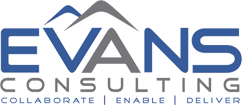 “Once upon a time…” is how most fairy tales begin. In the world of financial aid, only those of us who remember GSL, NDSL, and the Basic Grant also remember when, once upon a time, there were slow times in our offices. Not so anymore. In today’s financial aid office, the “slow times” seem to have gone the way of pay phones, vinyl albums, and TVs with knobs; they’ve become obsolete.
“Once upon a time…” is how most fairy tales begin. In the world of financial aid, only those of us who remember GSL, NDSL, and the Basic Grant also remember when, once upon a time, there were slow times in our offices. Not so anymore. In today’s financial aid office, the “slow times” seem to have gone the way of pay phones, vinyl albums, and TVs with knobs; they’ve become obsolete.
The “Busy Season”
Even if slow times don’t exist any longer, there are still “peak periods” ̶ i.e., the times that present the strongest test of our staff’s patience, fortitude, and sanity. These time periods vary from school to school, but typically they fall somewhere between January to June (or July or August or September?). This is when financial aid offices experience a large workload due to the start-up of the new award year cycle. Intermingled during this time is summer aid processing and the end of the prior school year, which includes graduation and exit counseling, among other things. This can mean that staff are working longer hours, under the pressure of tight deadlines, as well as often having to pick up skills and technical abilities at an extreme pace.
Certainly financial aid is not the only “business” that has peak periods. In retail, there is the holiday season; in the world of accountants and CPAs, there is the tax season. I have a friend who owned the stereo store in my little university town for many years. His peak periods were twice per year, September and January, which were, curiously, when students got their financial aid refunds!
Reducing Your Stress
I asked friends and colleagues how they personally deal with the peak periods and stressful times in their careers – how they stay positive no matter what. I also did some informal online research. Overall, there were some interesting comments and suggestions – some humorous, others more serious, some common sense, others more creative and insightful:
- I get out and catch some rays. Spending just a few minutes outside can do wonders for your mind and body.
- I stop carrying my information devices everywhere I go, especially when I’m out with my family.
- I hit the gym.
- I keep a note pad by the bed so that I can write down what I remembered that I forgot to do. That way even if I wake up in cold sweat I can still fall asleep after if I know what I remembered is safely jotted down.
- I make sure I start my day with a good breakfast.
- I find someone I can trust that I can vent with (preferably someone in student services or that knows financial aid, or better yet, another financial aid director).
- I make sure I get plenty of sleep.
- Keeping organized is the best way to make sure that you’re not feeling too overwhelmed in the busy season. Even if you have a bad memory, if you are organized, for example, by keeping a detailed diary of events or work outstanding, then you will be able to sleep with your mind at rest. When details are written down they are out of my head meaning I don’t have that nagging hour of insomnia before finally falling asleep.
- I take a breaks and read an awesome bestselling book.
- Turn your arms into a pillow and have a nap!
Reducing Stress in the Financial Aid Office
During my career as an associate director of financial aid, I realized that the main cause of my own stress was worrying about my staff and the stress they were feeling as the work piled up and the traffic escalated. What could be done beyond having pizza and ice cream day? Not that food isn’t helpful… We all know that food in a financial aid office is customary and a glue that binds. Themes such as a Mexican food potluck or a breakfast potluck were always very popular in my office. Also, variations to casual Friday, such as “Formal Friday” or “Prom Friday” were always solid spirit lifters. A favorite of mine was “Hat Day Friday.” It seems that everybody has a hat they would never otherwise wear in public, and goofy hats often lightened the mood in the office for students and staff alike.
Steps You Can Take: Recognizing and preparing for the expected increase in front counter traffic is vital for promoting a less stressful office environment. Here are some other suggested strategies:
- Stock Up: Make sure the lobby and front counter has plenty of forms and all the necessary office supplies (pens, post-it notes, note pads, message pads, paper clips, etc.) … and anything else your office uses when helping students. For me, nothing is more frustrating than running out of forms or pens, etc. when helping students. Being well stocked and having plenty of supplies can be a pre-emptive strike versus unnecessary stress.
- Clean Up: A messy lobby, reception area, and/or front counter area only creates chaos and confusion. Before it gets crazy busy, conduct any needed maintenance to get the office looking its best. Although office budgets often dictate such things, if possible, replace, repair or refinish worn office fixtures. Schedule the floors to be polished or have the carpets cleaned. A fresh coat of paint will also go a long way to sprucing up walls. Make sure all the lighting is in proper working order.
- Staff Up: Train staff well before the peak season begins. Be sure to review the plan for front-counter coverage and schedule enough staff for the coverage during peak periods.
- Rest Up: Remind your staff (and yourself) that in order to have a positive atmosphere for students, they must be well-rested, pleasant and prepared to deal with difficult situations. The best way to beat stress is by getting plenty of rest. Remember to maintain break schedules during the rush. Just ten minutes away from the front counter can renew a staff member’s energy.
And then, once peak season is all over, plan a party to celebrate with staff. They should be rewarded for their hard work.
A Pat on the Back: Like teachers, first responders, and health care professionals, financial aid folks are skilled helpers. It’s in our nature to help. In times of stress, when work is overwhelming, remind yourself and your staff that we are important. What we do matters. What we do is significant. Just be careful and don’t pull a muscle patting yourself on the back!


